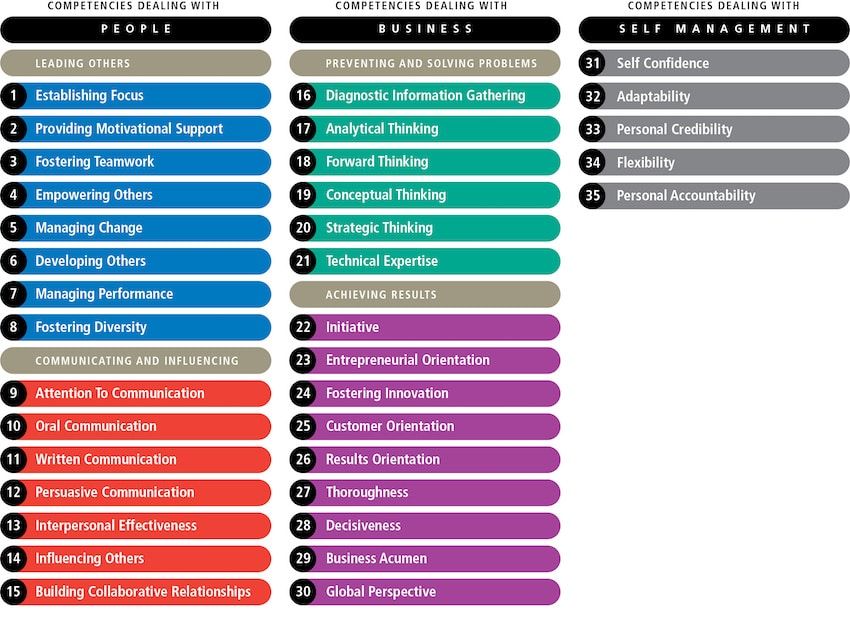Several months ago, millions of people began a new experience of working remotely, away from the familiarity of their usual office. This is a whole different environment with a lot of getting-use-to-it now going on. Once the initial shock of having to make a major adjustment in one’s life has subsided, it might be helpful to people working remotely and the organizations that employ them to have an understanding of the competencies that enable them to perform their jobs well.
Here is a list of ten such competencies drawn from Workitect’s Competency Dictionary. The selection of these particular competencies is based on my own experience in working remotely and on the experience of my firm in building hundreds of job competency models for a variety of jobs in a variety of industries. Some of the jobs include employees who were working remotely. But, none of these jobs were ones in which all employees are working remotely. It would be helpful to someday build such a model.
A more accurate list of competencies for successfully working remotely would derive from a full competency-modeling process that would include job analysis and behavioral event interviews, along with input from expert panels of people totally familiar with the position. Such a model would include all of the skills, knowledge, and personal characteristics (i.e. competencies) exhibited by superior performers in a specific position in a specific organization, regardless of the location of where the job is performed.
But, it might also be enlightening to have a conversation with people who have some experience or interest in what it takes to be effective performing a position remotely. That is the purpose of this blog post. Let’s share what we already know.
What competencies are exhibited by the superior performers, but not exhibited by average or ineffective performers? If a competency is lacking, how can it be developed – remotely? The success of every organization still depends in large part on the effective performance of all employees regardless of where they perform their jobs. People have not changed, even though the world has changed. The more we can help employees to be successful in this changed work environment, the more they will stay with your organization beyond this crisis.
This is my initial list. It does not include competencies that apply to specific positions, whether they be manager or non-manager jobs.
ATTENTION TO COMMUNICATION
Ensuring that information is passed on to others who should be kept informed.
Behavioral Indicators: specific behavioral ways of demonstrating the competency in the job
- Ensures that others involved in a project or effort are kept informed about developments and plans
- Ensures that important information from his/her management is shared with direct reports and others as appropriate in his/her organizational unit
- Shares ideas and information with others who might find them useful
- Uses multiple channels or means to communicate important messages (e.g., memos, newsletters, meetings, electronic mail)
- Keeps his/her manager informed about progress and problems; avoids surprises
- Ensures that regular, consistent communication takes place
ORAL COMMUNICATION
Expressing oneself clearly in conversations and interactions with others.
- Speaks clearly and can be easily understood
- Tailors the content of speech to the level and experience of the audience
- Uses appropriate grammar and choice of words in oral speech
- Organizes ideas clearly in oral speech
- Expresses ideas concisely in oral speech
- Maintains eye contact when speaking with others
- Summarizes or paraphrases his/her understanding of what others have said to verify understanding and prevent miscommunication
WRITTEN COMMUNICATION
Expressing oneself clearly in business writing.
- Expresses ideas clearly and concisely in writing
- Organizes written ideas clearly and signals the organization to the reader (e.g., through an introductory paragraph or through use of headings
- Tailors written communications to effectively reach an audience
- Uses graphics and other aids to clarify complex or technical information
- Spells correctly
- Writes using concrete, specific language
- Uses punctuation correctly
- Writes grammatically
- Uses an appropriate business writing style
TECHNICAL EXPERTISE
(re: Teleconferencing & Video conferencing) Depth of knowledge and skill in a technical area.
- Effectively applies technical knowledge to solve a range of problems
- Possesses an in-depth knowledge and skill in a technical area
- Is able to develop technical solutions to new or highly complex problems that cannot be solved using existing methods or approaches
- Is sought out as an expert, to provide advice or solutions in his/he technical area
- Keeps informed about cutting-edge technology in his/her technical area
RESULTS ORIENTATION
Focusing on the desired end result of one’s own or one’s units work; setting challenging goals, focusing effort on the goals, and meeting or exceeding them.
- Develops challenging but achievable goals
- Develops clear goals for meetings and projects
- Maintains commitment to goals, in the face of obstacles and frustrations
- Finds or creates ways to measure performance against goals
- Exerts unusual effort over time, to achieve a goal
- Has a strong sense of urgency about solving problems and getting work done
ADAPTABILITY
The ability to keep functioning effectively when under pressure and/or experiencing rapidly changing or uncertain conditions, and to maintain self-control in the face of hostility or provocation.
- Remains calm under stress
- Can effectively handle several problems or tasks at once
- Controls his/her response when criticized, attacked or provoked
- Maintains a sense of humor under difficult circumstances
- Manages own behavior to prevent or reduce feelings of stress
- Quickly adjusts and constructively reacts to unforeseen circumstances and setbacks
- Modifies behavior to remain effective in different organizations and cultures
PERSONAL CREDIBILITY
Demonstrated concern that one be perceived as responsible, reliable, and trustworthy.
- Does what he/she commits to doing
- Respects the confidentiality of information or concerns shared by others
- Is honest and forthright with people
- Carries his/her fair share of the work load
- Take responsibility for own mistakes; does not blame others
- Conveys a command of the relevant facts and information
FLEXIBILITY
Openness to different and new ways of doing things; willingness to modify one’s preferred way of doing things.
- Is able to see the merits of perspectives other than his/her own
- Demonstrates openness to new organizational structures, procedures, and technology
- Switches to a different strategy when an initially selected one is unsuccessful
- Demonstrates willingness to modify a strongly held position in the face of contrary evidence
PERSONAL ACCOUNTABILITY
Takes responsibility for the results and future direction of the organization.
- Willingly accepts ownership for the leadership and effectiveness of the organization; looks for ways to make a difference
- Consistently demonstrates a positive can-do, overcome-any- barrier attitude
- Focuses attention on determining what can be done to make progress rather than on why it can’t be done or blaming others for problems
This competency is a management/leadership competency. But, it is so important in this environment, whether performed remotely or non-remotely, that I had to include it. For individual contributors, I would modify the language to “coping with change”.
MANAGING (or Coping with) CHANGE
Demonstrating support for innovation and for organizational changes needed to improve the organization’s effectiveness; supporting, initiating, sponsoring, and implementing organizational change; helping others to successfully manage organizational change.
- Works cooperatively with others to produce innovative solutions
- Takes the lead or supports the setting new business directions, partnerships, policies or procedures
- Seizes opportunities to influence the future direction of an organizational unit or the overall business
- Helps people to develop a clear understanding of what they will need to do differently, as a result of changes in the organization
- Sponsors, implements or supports various change management activities (e.g., communications, education, team development. coaching)
- Establishes or supports structures and processes to plan and manage the orderly implementation of change
- Helps individuals and groups manage the anxiety associated with significant change
- Facilitates groups or teams through the problem solving and creative thinking processes leading to the development and implementation of new approaches, systems, structures and methods
These competencies are drawn from the Workitect’s Competency Dictionary containing these 35 competencies.
Based on your experience working remotely or managing someone who is working remotely, which competencies in the dictionary are most critical to effective or superior performance? What other competencies not in this dictionary are important.
We have created a Competency Development Guide that contains a guide for each of the 35 competencies in our Dictionary. For each competency, there is:
- A definition and observable behaviors that may indicate the existence of a competency in an individual
- Importance of the competency
- General considerations in developing the competency
- Practicing the competency
- Obtaining feedback
- Learning from experts
- Coaching suggestions for managers
- Sample development goals
- Books
- Self-study courses
- External courses and seminars
We have recently updated a set of development guides for the ten competencies listed above for working remotely,
If you want a copy of these guides, please let me know. Also let me know if you are interested in having a license for organization-wide use of our Dictionary, Competency Development Guide, and Competency Interview Guides. You can easily customize any of the materials. We also have an eDeveloper™, which is an online version of the Competency Development Guide, and 360 feedback instruments.
If you want to have a custom competency model built, here are some options:
- We can build it for you.
- We teach you how to build it and/or build it with you collaboratively. Learn more.
- You can have it built remotely using our Virtual Resource Panel. Example of report
For additional information, call 800-870-9490, email edward.cripe@workitect.com
or use the contact form at Workitect.
©️2020, Workitect, Inc.




Leave A Comment